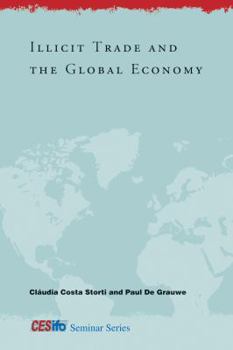Illicit Trade and the Global Economy
Select Format
Select Condition 
Book Overview
Economists explore the relationship between expanding international trade and the parallel growth in illicit trade, including illegal drugs, smuggling, and organized crime.
As international trade has expanded dramatically in the postwar period--an expansion accelerated by the opening of China, Russia, India, and Eastern Europe--illicit international trade has grown in tandem with it. This volume uses the economist's toolkit to examine the economic, political, and social problems resulting from such illicit activities as illegal drug trade, smuggling, and organized crime.
The contributors consider several aspects of the illegal drug market, including the sometimes puzzling relationships among purity, price, and risk; the effect of globalization on the heroin and cocaine markets, examined both through mathematical models and with empirical data from the U.K; the spread of khat, a psychoactive drug imported legally to the U.K. as a vegetable; and the economic effect of the "war on drugs" on producer and consumer countries. Other chapters examine the hidden financial flows of organized crime, patterns of smuggling in international trade, Iran's illicit trading activity, and the impact of mafia-like crime on foreign direct investment in Italy.





